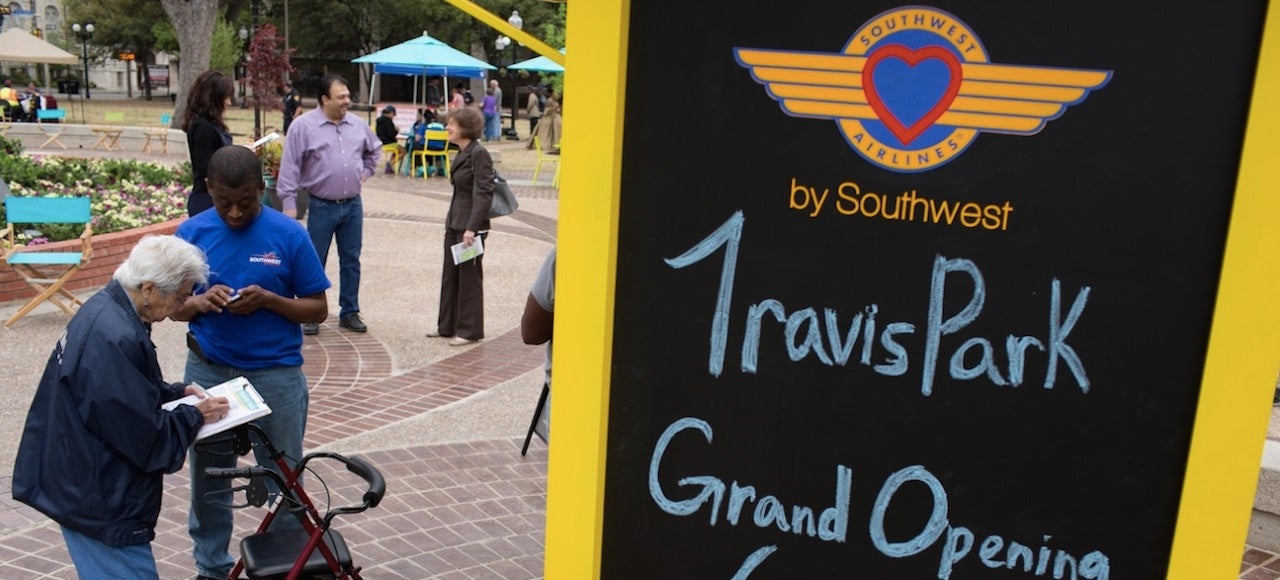
Over the last 47 years, Southwest Airlines has built a vibrant—if a little goofy—airborne community. Now some of that culture is fueling urban improvements on the ground. Southwest’s new initiative called the Heart of the Community is working to build public spaces in all of the 90 cities the airline serves.
![]()






